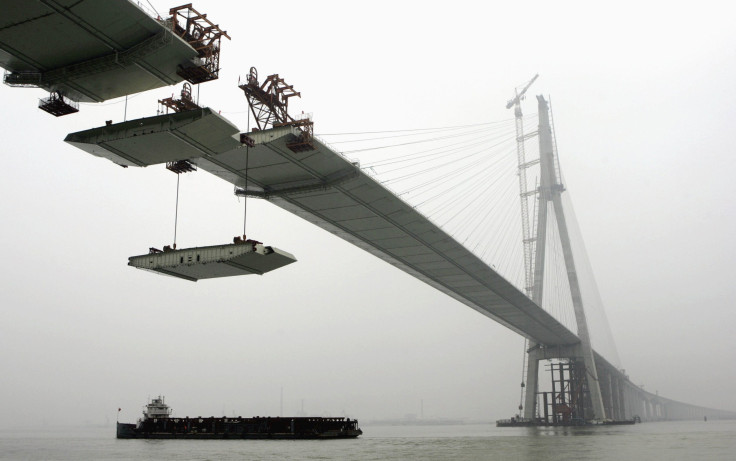China's November Exports Up 12.7%, Imports Up 5.3%, Trade Surplus Increases To $33.8 Billion

China's November exports rose 12.7 percent from a year ago, topping analysts' forecast of a 7.1 percent increase, the General Administration of Customs said on Sunday in Beijing. Meanwhile, imports rose 5.3 percent -- lower than the 7.2 percent rise expected -- leaving the country with a trade surplus of $33.8 billion for the month. A trade surplus of $21.7 billion was recorded in October.
November’s below-consensus imports number showed that consumption in China is not growing at a fast enough pace. If Beijing wants the recent economic rebound to be sustainable, China’s top leadership will have to successfully implement the bold economic and social reforms it unveiled last month and unleash fresh growth drivers for the world's second-largest economy.
A Reuters poll showed China’s annual economic growth this year could slow to 7.6 percent -- the weakest in 14 years -- but ahead of the government's target of 7.5 percent.
Barclays believes the need to reduce overcapacity, control local government debt and further regulate the shadow-banking business, in combination with the central bank’s concerns on rapid credit growth amid capital inflows and the desire to control inflation, point to tighter liquidity, higher interest rates and slower growth going forward.
China's top policymakers will set key economic targets for 2014 at the annual Central Economic Work Conference, which is expected to be held later this month.
“We expect the government to cut its 2014 growth target to 7 percent at the Central Economic Working Conference to be held in the next week or two,” Zhiwei Zhang, chief economist of Nomura Securities, wrote in a note.
Two more economic reports are scheduled to come out next week:
Sunday (8:30 p.m. ET) – Consumer Price Index and Producer Price Index: CPI inflation likely remained at 3.2 percent year-over-year in November. “CPI inflation could be quite close to 3.5 percent for the rest of 2013, triggering market concerns about policy tightening,” Lu Ting, Bank of America Merrill Lynch economist, said in a note.
With weakened commodity prices and the 2 percent month-on-month drop in domestic fuel prices, PPI inflation probably fell by 0.1 percent month-on-month and 1.5 percent year-over-year in November.
Tuesday (12:30 a.m. ET) – Industrial Production, Fixed-Asset Investments and Retail Sales: Industrial production in November likely increased by 10 percent, after growing by 10.3 percent in October.
Headline FAI growth (nominal and year-to-date) could edge down to 20 percent year-over-year in November from 20.1 percent in October. On a monthly basis, economists expect the yearly growth to slow down to 19.1 percent in November from 19.4 percent in October.
According to Lu, the deceleration in FAI growth is likely to come from weaker real estate FAI growth as tier-one and tier-two cities continue to roll out tightening measures trying to rein in property prices. Railway FAI, however, is expected to increase to achieve the recently raised 2013 target FAI of 690 billion yuan. This will slow down the decrease in infrastructure FAI growth. Manufacturing FAI will also remain relatively robust.
Meanwhile, growth in retail sales probably ticked up to 13.4 percent in November from 13.3 percent in October.
© Copyright IBTimes 2024. All rights reserved.





















